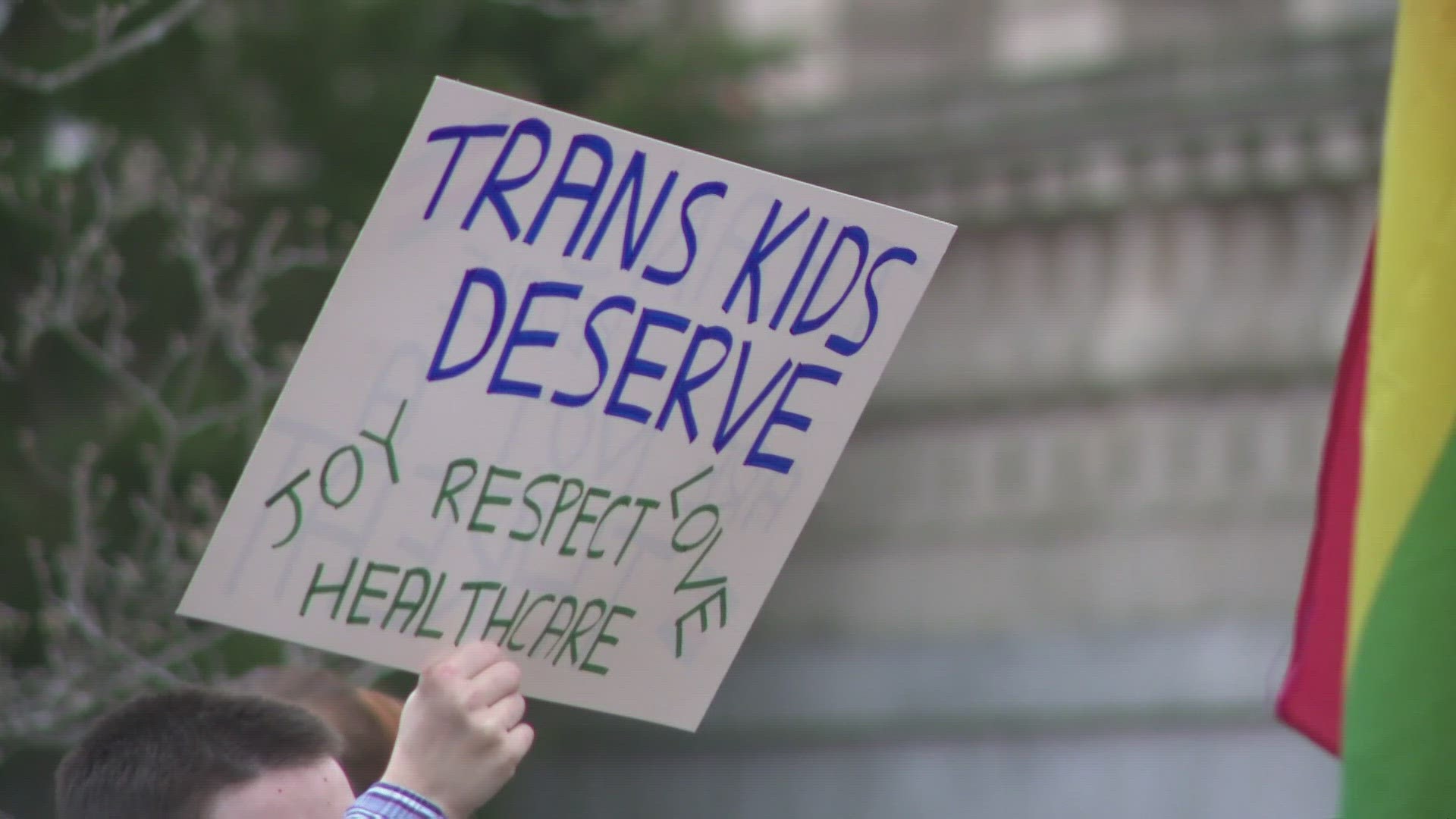NASHVILLE, Tenn. — In April, the American Civil Liberties Union announced they were suing Tennessee aiming to prevent a law from going into effect that would have prevented transgender youth from getting gender-affirming healthcare.
On June 28, they announced that the law was effectively blocked after a judge signed a preliminary injunction against it. It was signed by Judge Eli Richardson in Middle Tennessee, and it did not fully grant the ACLU's request for the law to be blocked. The law would have gone into full effect on July 1.
The preliminary injunction specifically does not block the state's ban on gender-affirming surgeries for minors. However, other provisions of the law that bans gender-affirming care for transgender youth are blocked.
"Every federal court so far has blocked or rejected these bans as discriminatory and dangerous," the ACLU said on social media.
The lawsuit was filed on behalf of three families and a Memphis-based medical doctor who provides gender-affirming care. Two of the families filed anonymously, and one in Nashville has a 15-year-old transgender daughter. SB 0001 was signed on March 2, which bans forms of gender-affirming care for transgender minors.
These forms of care — such as puberty blockers, hormone therapy and surgery — could be used to help adolescents with gender dysphoria. The state's law specifically excluded gender dysphoria from its definition of disease, meaning transgender youth suffering from it would not be able to access the kinds of care they need.
The U.S. Department of Justice also filed a complaint against the law, saying it "denies necessary medical care to youth based solely on who they are."
According to the Endocrine Society Guideline, adolescents are only eligible for puberty-delaying treatment if a mental health professional confirms several aspects of a patient's health, including that the adolescent has a long-lasting pattern of gender dysphoria, it worsened with the onset of puberty and they have sufficient "mental capacity" to consent to the treatment.
Providers also need to follow similar guidelines when deciding if a transgender adolescent is eligible for gender-affirming hormone therapy.
The court found that "parents have a fundamental right to direct the medical care of their children, which naturally includes the right of parents to request certain medical treatment on behalf of their children."
It also found that, although SB 0001 does not use the word "transgender," it proscribes treatment for gender dysphoria. In the court's opinion, it said the court agrees with the ACLU's arguments that the law specifically targets transgender people since one needs to be transgender to have gender dysphoria.
"Defendants do no contest that only transgender individuals suffer from gender dysphoria," the court opinion said.
It said the state's arguments "improperly characterizes the group of people that are affected by SB1." The state argued that not all transgender people want procedures banned by the law, and so it would not specifically target them.
However, the court found "the only group of individuals that are denied treatment are transgender persons," because they are the only ones who would seek treatment for gender dysphoria.
"The court realizes that today’s decision will likely stoke the already controversial fire regarding the rights of transgender individuals in American society on the one hand, and the countervailing power of states to control certain activities within their borders and to use that power to protect minors," the opinion says. "The Court, however, does not stand alone in its decision ... To the Court’s knowledge, every court to consider preliminarily enjoining a ban on gender-affirming care for minors has found that such a ban is likely unconstitutional."

